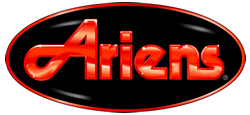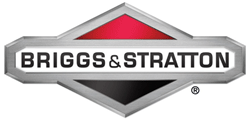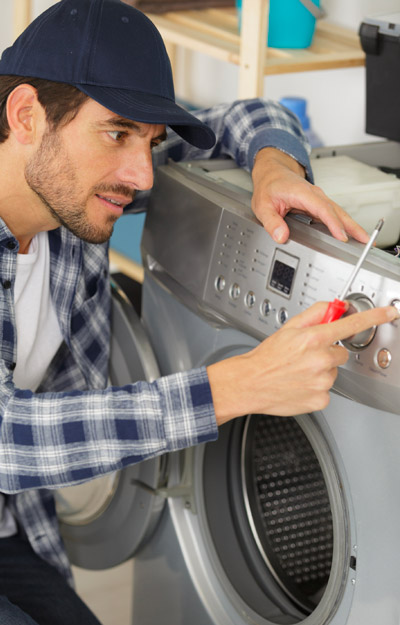Make sure you haven't got the discount earlier.
Appliance Parts
- Accessories
- Dishwasher
- Dryer
- Stove / Oven
- Microwave
- Refrigerator
- Washer
- See more... See less...
Lawn Equipment Parts
- Lawn Mower
- Chainsaw
- Blower
- Generator
- Air Compressor
- Lawn Tractor
- Pressure Washer
- See more... See less...
Energy Efficient Homes - Doing Your Part to Save Energy
In recent years, the United States has ranked among the top ten highest consumers of energy worldwide. Natural fossil fuel sources are rapidly depleting and there is a very real danger of our modernized world one day being crippled due to a lack of energy. It is crucial to conserve what we have and also seek out alternative sustainable energy sources. Currently the U.S. government is actively promoting energy conservation endeavors and even offers tax credits for participating. Energy conservation starts at the most basic roots: individuals. By conserving energy at a residential level, the numbers quickly add up on a national scale and can make a dramatic difference.
What kind of home improvements do most homes need?
Most homes rack up hefty power bills for the simple fact that their maintenance is not up to date or that they use old appliances. Over time, it is common for houses to develop air leaks around windows, doors, ducts and wall holes where cables run. Addressing these issues will make a world of difference in reducing energy costs by conserving the amount of energy spent. While some home improvements are more extensive, there are also smaller changes that the whole family can implement immediately.
- Air Leaks – Seal leaks to prevent temperature-controlled air from escaping.
- Lighting – Upgrading to energy efficient bulbs and lighting systems.
- Insulation – Installing better insulation, including in basements and attics.
How to find out if your home is energy efficient?
It is important for residents to do a thorough assessment of their homes to find out how energy efficient they are. Some conditions are obvious enough and are easy to detect, such as mold and dust. Even drafts can be detected by walking around the house with a lit incense stick. When the smoke drifts, it indicates an air leak nearby. Other issues may require a professional to investigate and an energy audit can help greatly.
- Drafty Rooms – Drafts indicate air leaks and also increase heating costs.
- Mold and Mildew – Often caused by high humidity due to badly installed air conditioning systems.
- Dust – Increased amounts of dust can indicate dirty or blocked air filters, which increase energy bills.
- Assess Your Home – Online energy assessment tools and resources from the EPA.
- Energy Audit – An energy audit will offer the best ways to minimize energy costs and maximize conservation.
How to find out what you need to do to make your home energy efficient?
There are numerous guides online with suggestions on making the home more energy efficient. Despite the cost, bear in mind that the government is actively promoting its energy renovation tax credits. Apart from this, the upgrades will show a noticeable difference even within the first year of use.
- DIY Fixes – Tips on DIY renovations to save energy.
- Thermostats – Install a programmable thermostat.
- Insulation – Learn more about home and garage insulation.
- Caulking – Seal air leaks in windows, doors and holes.
- Refrigerators – Proper refrigerator maintenance and cleaning.
- Home Energy Saver – Calculate home energy use and generate recommendations for conservation.
What can you and your family do to make your home more energy efficient?
Change starts at home and by teaching children about energy conservation, we can all help to change habits early on. Simple things such as switching off lights, taps and appliances that are not in use are important to remember. Children can also be involved in activities such as recycling, composting, and reusing things that might normally be thrown away. A fun way to show them the difference they make is to show them the energy comparisons from month to month on hydro bills.
- Cooking – Save energy while cooking.
- Involve the kids – Teach kids about saving with this interactive website.
- Change Habits – Modify family behaviour and stay aware of energy use.
- Home Office – Reduce energy use while you work.
- Water Conservation – Tips on reducing water use.
- Outdoor Lighting – Upgrade outdoor bulbs.
What contractors and professional electricians can do for you?
Hiring a contractor to upgrade areas of the home can make a remarkable difference in the energy usage of the house. Many contractors and professionals are now also careful to be energy efficient in the way they work themselves. Ask for recommendations to find out more from them. Always research before embarking on any renovations to find the right contractor for your project.
- Finding a Contractor – How to find a good contractor.
- Heating/Cooling – Fix and install energy efficient systems.
- Windows – Improve internal temperatures with high performance windows.
- Toilets – Reduce water use with low-flush toilets.
- Wiring – Updating wiring systems and rewiring.
Sustainable Energy
Sustainable energy is the use of an energy source without creating a shortage of it in the future. It typically includes forms of renewable energy as well as energy-efficient devices and technologies. Of utmost importance is that sustainable energy has to be renewable as well as efficient. This helps to conserve current energy sources while also minimizing waste output.
- Sustainable Energy – Further explanation on sustainable energy sources.
- Green Energy – Tips on using sustainable energy sources.
- Ground Source Heat Pump – Resources on how to install a heat pump.
- Biofuels – Powering homes with sewage.
Renewable energy
Renewable energy is made up of energy sources in nature, such as heat and light from the sun, wind, water or heat from the earth. The advantage of using renewable energy is that is restored naturally and does not create a scarcity as is the case with fossil fuels. More and more technologies are now being developed to run on renewable energy. By seeking out and using these products, we can all make a difference in the way we live.
- Renewable energy in the U.S. – An interactive guide by state.
- Solar Power – The sun’s energy can be used to power small appliances to entire houses.
- Solar Water Heaters – Using solar power to reduce heating bills. (PDF)
- Wind Energy – Electricity can be generated by using wind turbines.
- Clotheslines – Use natural air and warmth outdoors to dry clothes.
- IREC – Non-profit organization dedicated to educating the public on renewable energy.
Energy Star Appliances
Energy Star is a program supported by the U.S. government (as well as many others around the world) to help consumers identify officially sanctioned energy efficient products. Energy Star appliances are a large step up from older products and make use of newer technology to use less energy while delivering equivalent or better performance. Approved appliances include household and office products. They can be identified by the Energy Star sticker and logo, which are placed in a prominent spot on approved products.
- Laundry – Washers and dryers.
- Refrigerators – Fridges and freezers.
- Dishwashers – Use less water and energy.
- Air Conditioning – Heating and cooling make up the largest component of residential energy bills.
- Air Cleaners – Purchase wisely, since air cleaners actually use up to 60% more energy than refrigerators.
Energy Efficient Technologies
Since becoming aware of energy source scarcity and its impact on our environment, scientists and companies have urgently been pushing to implement and develop better technologies to harness sustainable and renewable energy. For the home, one of the most basic types of these technologies are compact fluorescent light bulbs. Although they cost more than traditional bulbs, CFLs can last about ten times more.
- Efficient Products – A list of various types of energy efficient technologies for the home.
- Lights – Install compact fluorescent lights instead of incandescent ones.
- Storm Windows – Reduce air leaks around windows at a low cost.
- Induction Cooking – Induction stoves use heated coils that lie under a glass surface.
- Furnace – A modulating furnace automatically adjusts itself to operate at maximum efficiency.
Types of programs people can join?
The government realizes that energy efficient upgrades can be costly to homeowners and to account for this, it has provided a number of tax credits and related programs. All receipts and details of the renovations should be kept and later submitted in order to receive the credits. There are also programs that help residents to measure the amount of energy their household uses and will give recommendations on how to reduce it.
- Energy Tax Credits – The U.S. government offers tax breaks to citizens for upgrading to energy efficient home renovations and technologies.
- Energy Improvement Loans – Offered by the Federal Housing Administration.
- Home Energy Score – Measure and compare your home’s energy consumption.
- More Energy Programs – List of programs offered by the U.S. Department of Energy.
- Search your model number to find:
- Genuine OEM parts guaranteed to fit
- Free manuals and guides
- Repair instructions and videos


































